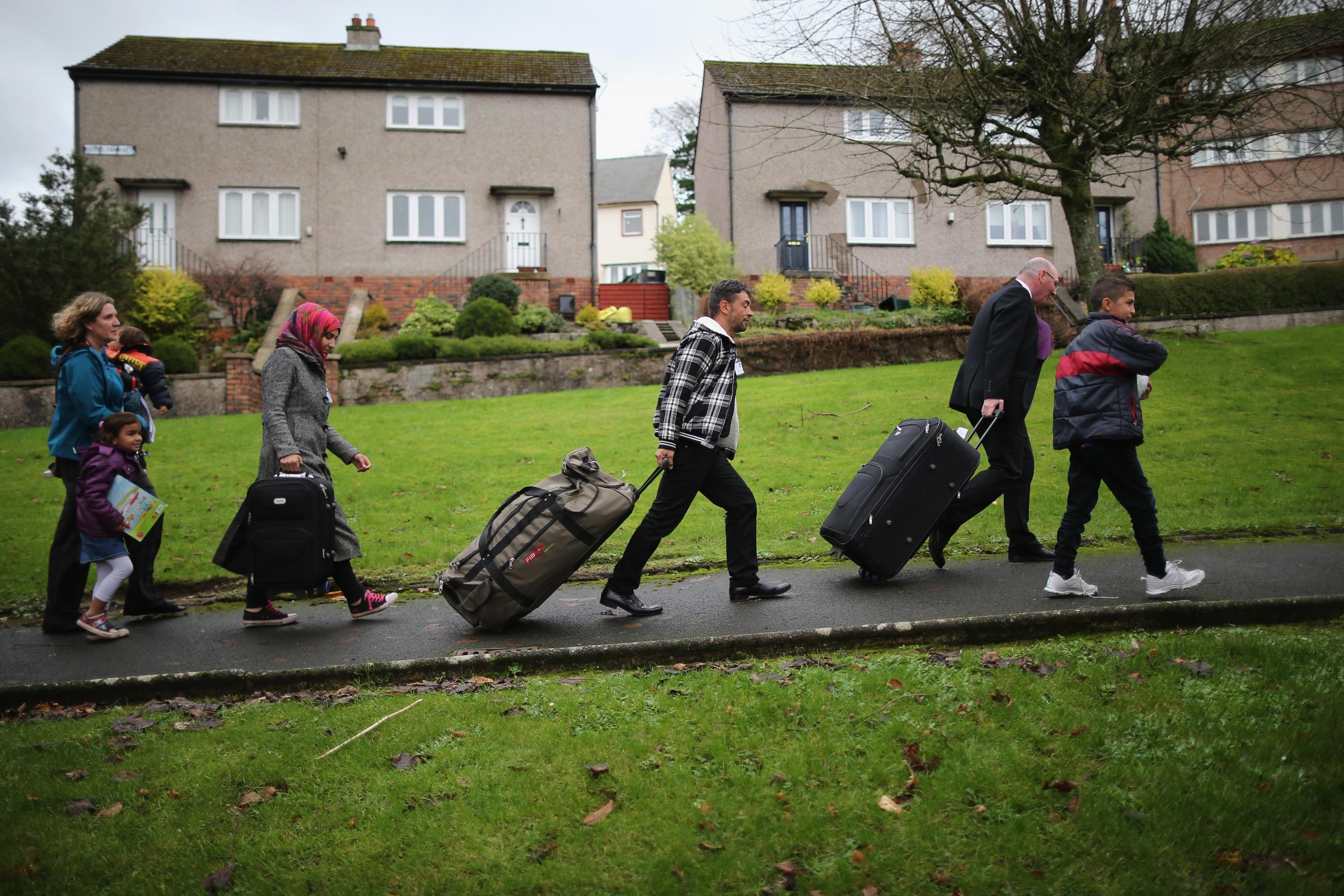Syrian torture victims settling in UK may not be receiving specialist care, report warns
According to a report by the influential Public Accounts Select Committee more than half of the 2,659 Syrian refugees resettled up to the end of June 2016 are the survivors of torture or violence

Your support helps us to tell the story
From reproductive rights to climate change to Big Tech, The Independent is on the ground when the story is developing. Whether it's investigating the financials of Elon Musk's pro-Trump PAC or producing our latest documentary, 'The A Word', which shines a light on the American women fighting for reproductive rights, we know how important it is to parse out the facts from the messaging.
At such a critical moment in US history, we need reporters on the ground. Your donation allows us to keep sending journalists to speak to both sides of the story.
The Independent is trusted by Americans across the entire political spectrum. And unlike many other quality news outlets, we choose not to lock Americans out of our reporting and analysis with paywalls. We believe quality journalism should be available to everyone, paid for by those who can afford it.
Your support makes all the difference.Syrian torture survivors who have settled in Britain as refugees may not be receiving specialist support and access to mental health services, according to a new Commons report.
The report by the influential Public Accounts Select Committee claims that around half of the 2,659 Syrian refugees resettled up to the end of June 2016 are the survivors of torture or violence. But, it adds, only a handful have been referred to specialist organisations for assessment and rehabilitation services.
Meg Hillier, the Labour MP who chairs the committee, called on ministers to undertake a full review of how victims of torture are identified and later supported by local authorities. “It is critical that such people receive specialist support,” she added.
“Our committee has previously highlighted the shortcomings in access to mental health services and we call on the Government to ensure a plan is in place to properly support refugees in need of them”.
The committee received evidence from Freedom from Torture, a registered charity dedicated to the treatment and rehabilitation of survivors of torture who seek refuge in the UK. In a statement the charity, however, said it was concerned refugees were not receiving the care they need to recover from their traumatic experiences during Syria’s brutal civil war.
The charity added: “Despite being the largest torture rehabilitation centre in the country (and one of the largest in the world), only a handful of Syrians from the Syrian Vulnerable Persons Resettlement programme have been referred to us for assessment or rehabilitation services.”
The report from the PAC also raises doubts over a pledge by the former Prime Minister David Cameron – in response to the humanitarian crisis in the region during the summer of 2015 – to resettle 20,000 Syrian refuges in Britain by the end of the decade through the Syrian Vulnerable Person Resettlement programme
Despite a concerted effort to resettle 1,000 refugees before Christmas in 2015, the report adds: “Meeting the overall the target, to resettle 20,000 of the most vulnerable Syrian refugees in the UK by May 2020, remains a significant challenge.”
While local authorities across the UK have already made sufficient indicative pledges of support to house all 20,000 of the expected refugees, there was also “confusion” about the full extent of support they were expected to provide. Failure to provide clarity on this issue “risks the successful delivery of the programme,” the report warned.
Ms Hillier said more work was needed to make the resettlement programme “sustainable in the longer-term”.
The Government should set out “detailed plans” now or risk failing the refugees and undermining public support for the programme, she added.
“It is important to recognise the efforts and achievements of those bodies involved in the early part of this programme, which resettled 1,000 refugees before Christmas 2015,” said Ms Hiller. “But there is a long way to go.”
Refugee Council director of advocacy Lisa Doyle said: “The Government’s target of resettling 20,000 people is more than achievable and local communities and charities like the Refugee Council are standing ready to help.
“What’s needed now is an acknowledgement that the global refugee crisis isn't going away any time soon and that a longer-term strategy for refugee resettlement is needed which clearly outlines roles, responsibilities, resources and an ambitious plan for welcoming refugees beyond 2020.”
Join our commenting forum
Join thought-provoking conversations, follow other Independent readers and see their replies
Comments